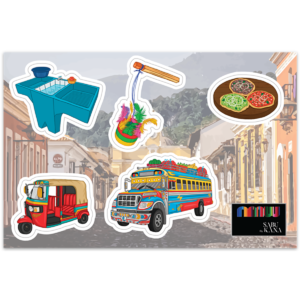The vibrant tapestry of Latin American cultures is rich with unique traditions, histories, and colloquialisms that distinguish one nation from another. Among such cultural identifiers is the affectionate nickname given to the people of Guatemala: “Chapines.” This term, deeply ingrained in the national identity, carries with it stories of historical significance and cultural evolution. But what are the origins of this distinctive moniker, and why are Guatemalans called Chapines?
Historical Origins
The term “Chapín” traces back to the 16th and 17th centuries, rooted in the fashion trends of Spain, from which the word originally derived. During this period, “chapines” referred to a type of high-platform shoe popular among the Spanish aristocracy. These shoes were not just a fashion statement but also served practical purposes, such as keeping the wearers’ feet above the mud and street filth of the era. The style eventually made its way to the Spanish colonies, including Guatemala.
Adoption in Guatemala
As the chapines shoes gained popularity among the colonial elite in Guatemala, the term began to take on a new local significance. The adoption and adaptation of this European fashion by the Guatemalan upper class did not go unnoticed by the general population. Eventually, “chapín” evolved from a term describing a person wearing these high-platform shoes to a colloquial nickname for the residents of Guatemala City, and later, it broadened to include all Guatemalans.
Get your Chapín merch here!
Cultural Significance
The evolution of the term “Chapines” from a reference to fashion into a national identifier reflects the dynamic nature of cultural exchange and adaptation. It symbolizes how external influences can be integrated and transformed within local contexts, contributing to the collective identity. Today, being called a Chapín is a source of pride for many Guatemalans, embodying a sense of belonging, unity, and national pride. It signifies more than just a nickname; it encapsulates the rich history and cultural diversity of Guatemala.
Modern Usage
In contemporary times, Guatemalans both at home and abroad proudly identify as Chapines. The term is used affectionately to refer to fellow countrymen and is emblematic of the warmth and communal spirit characteristic of Guatemalan society. It’s common to see businesses, restaurants, and social clubs for the Guatemalan diaspora incorporating “Chapín” into their names, further cementing its role as a cultural signifier.
Sabukana: Unapologetically Embrace Yourself
Sabukana was created by two Latina sisters, Melanie and Scarlett, to celebrate their Latin roots and multicultural upbringing with a modern twist.
Our creations are made for people who unapologetically embrace their own. They represent our cultures, serving as a reminder of where we come from and who we are.
















